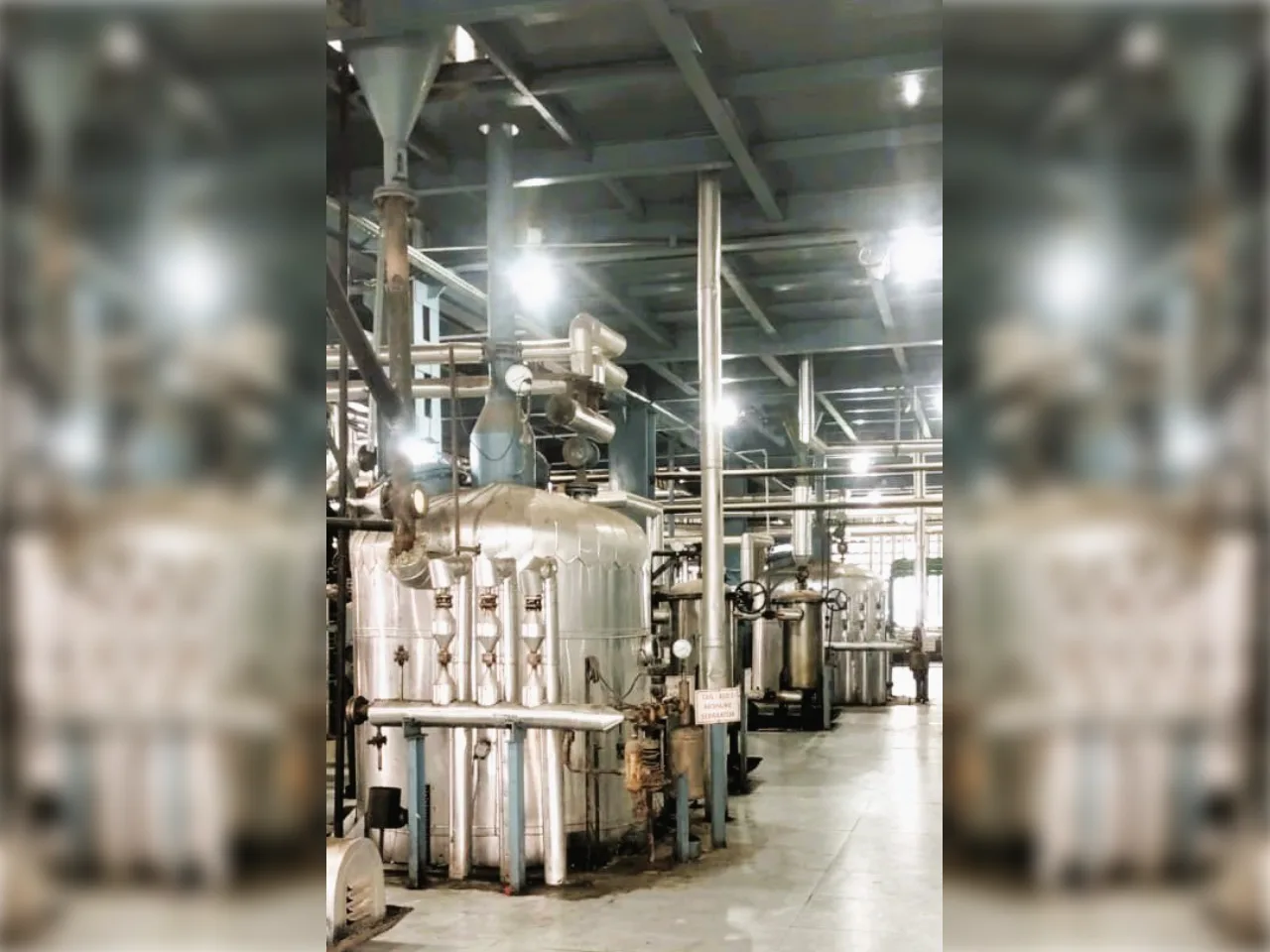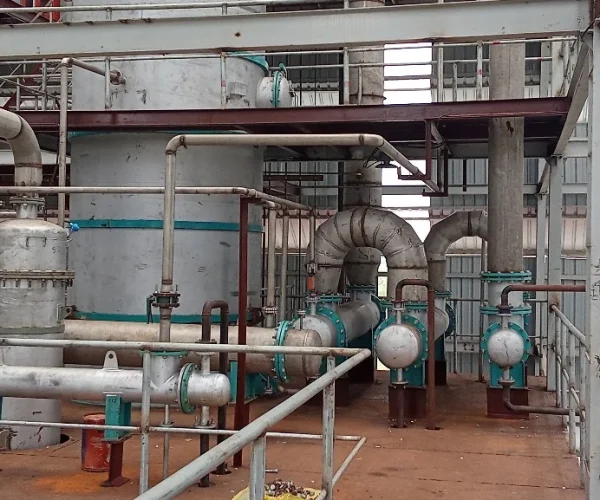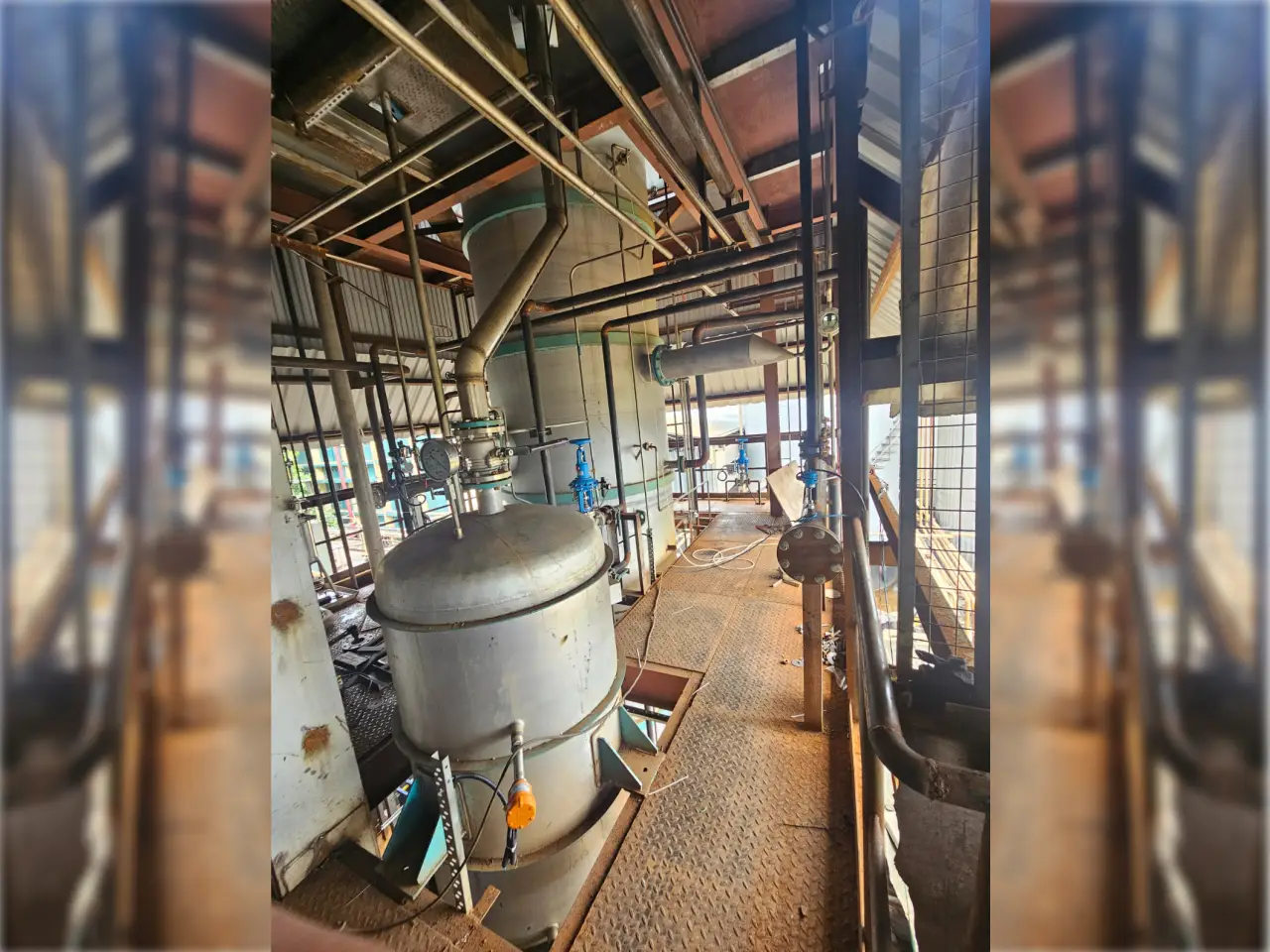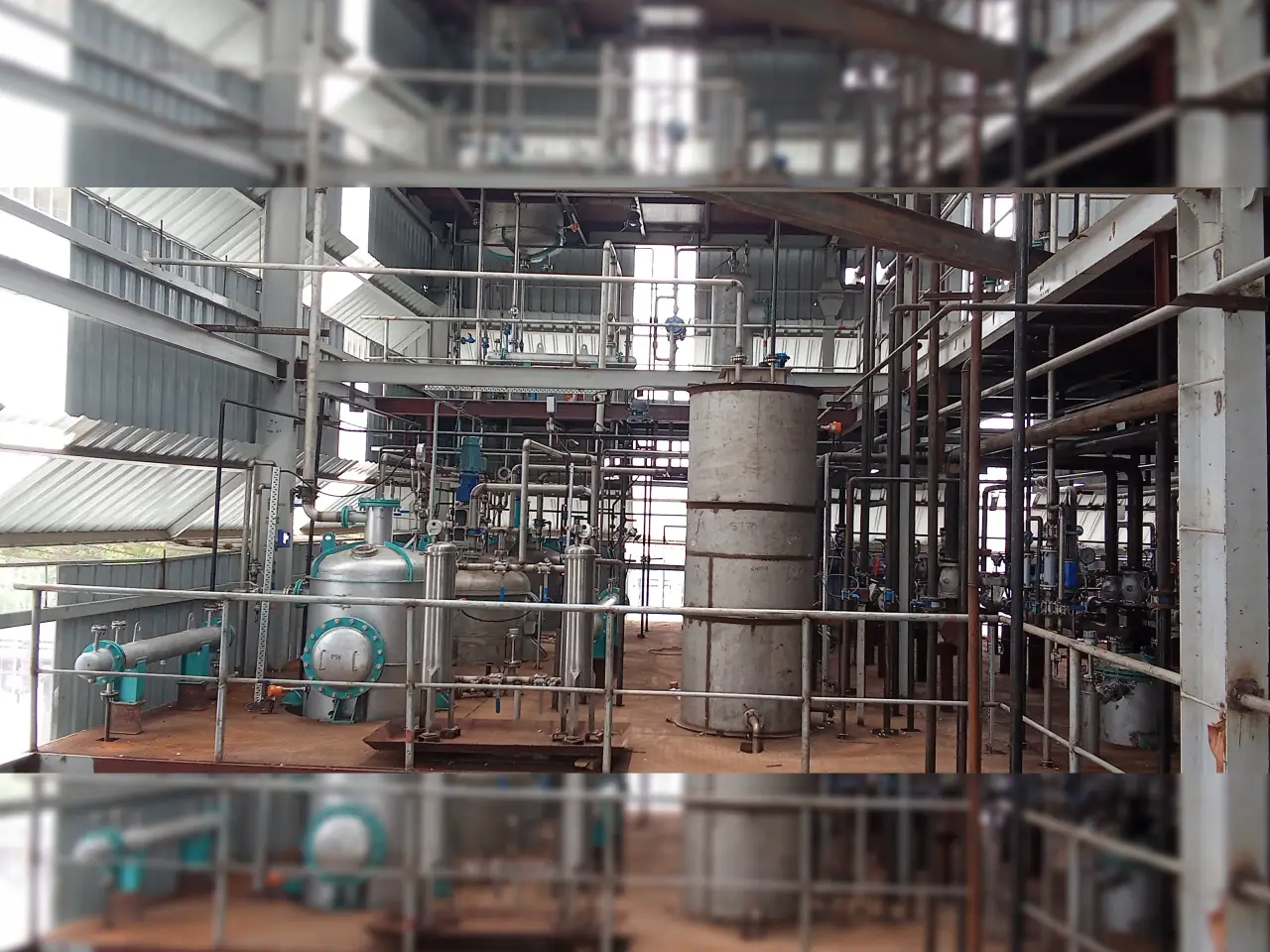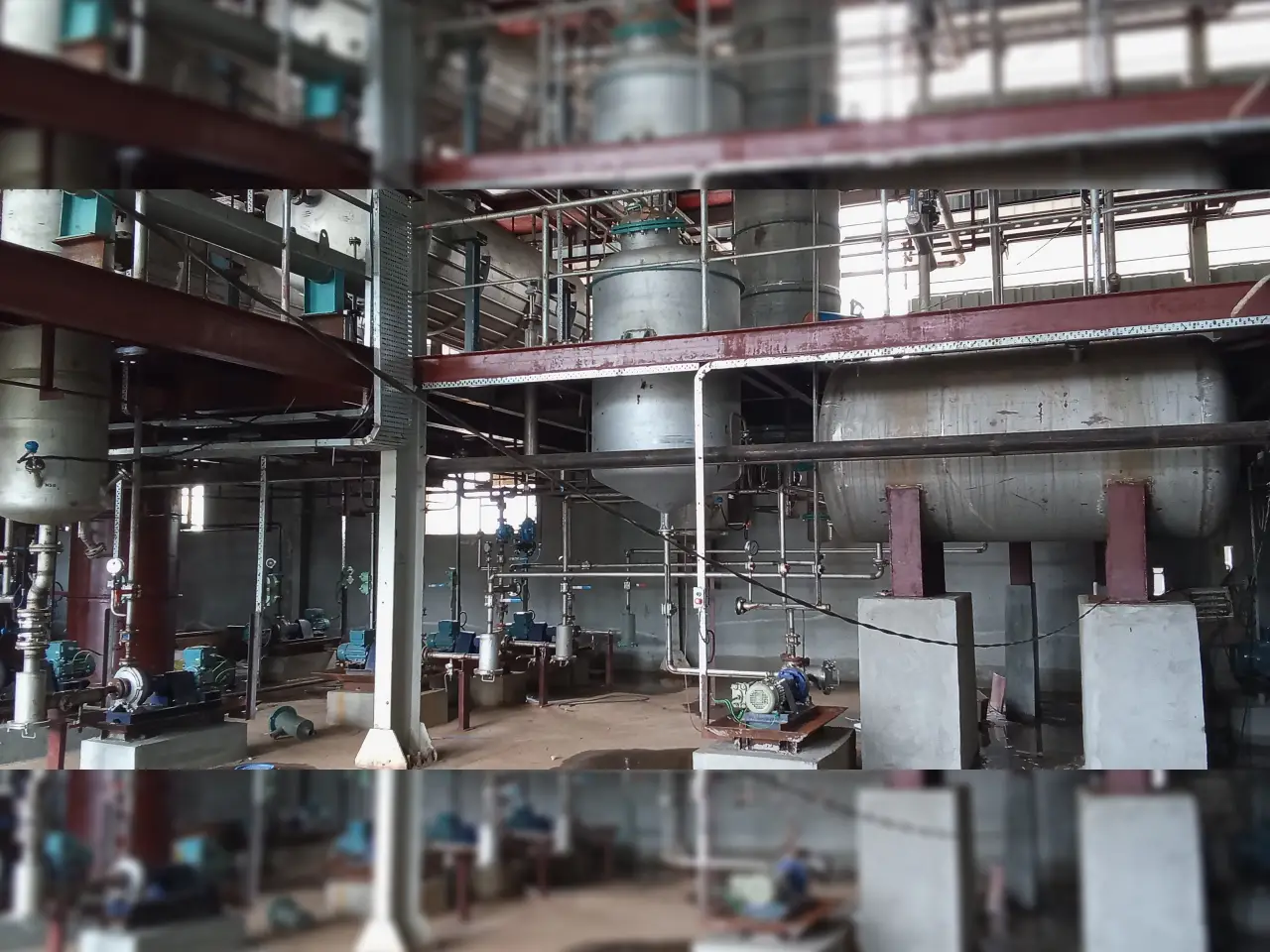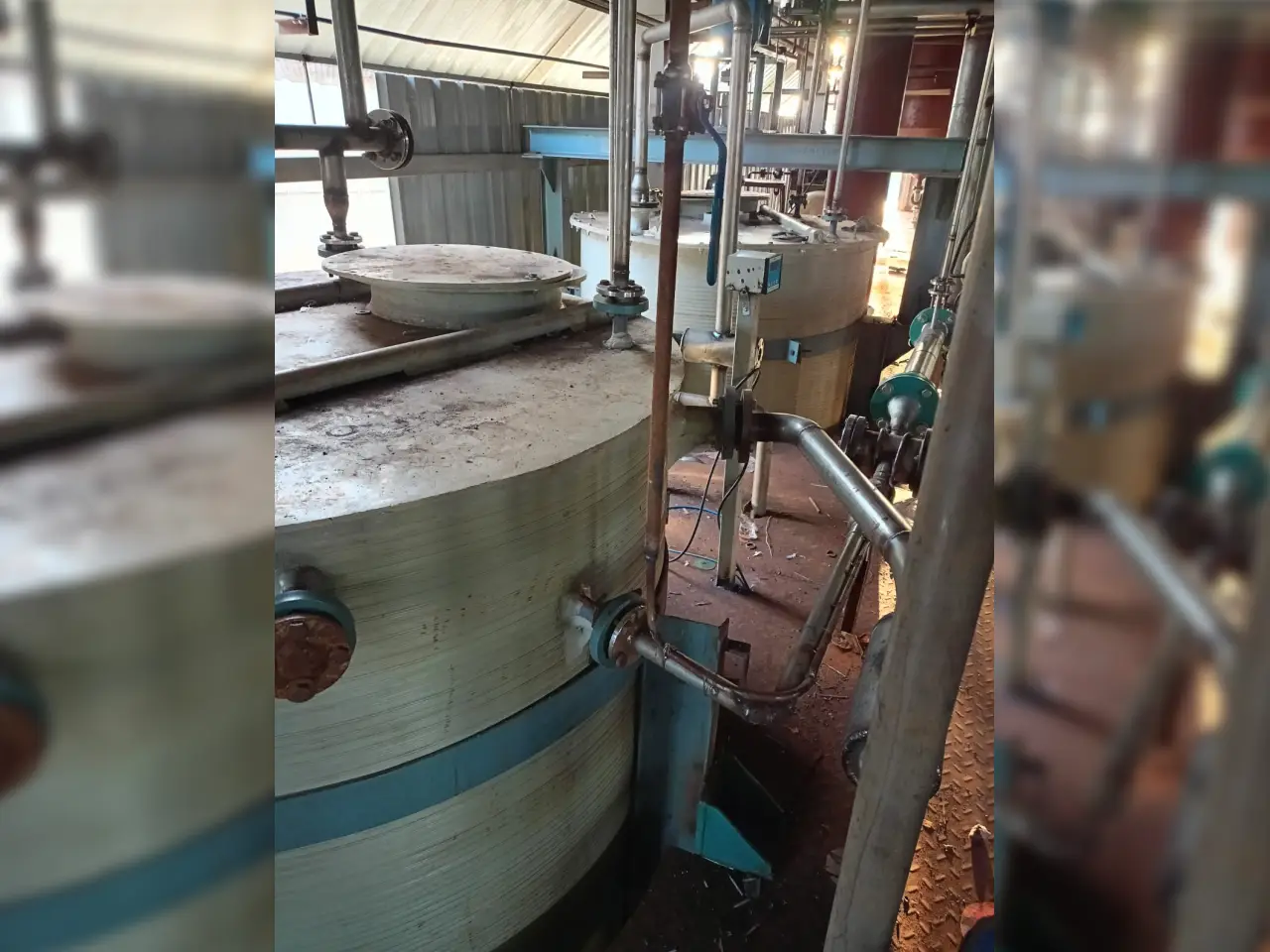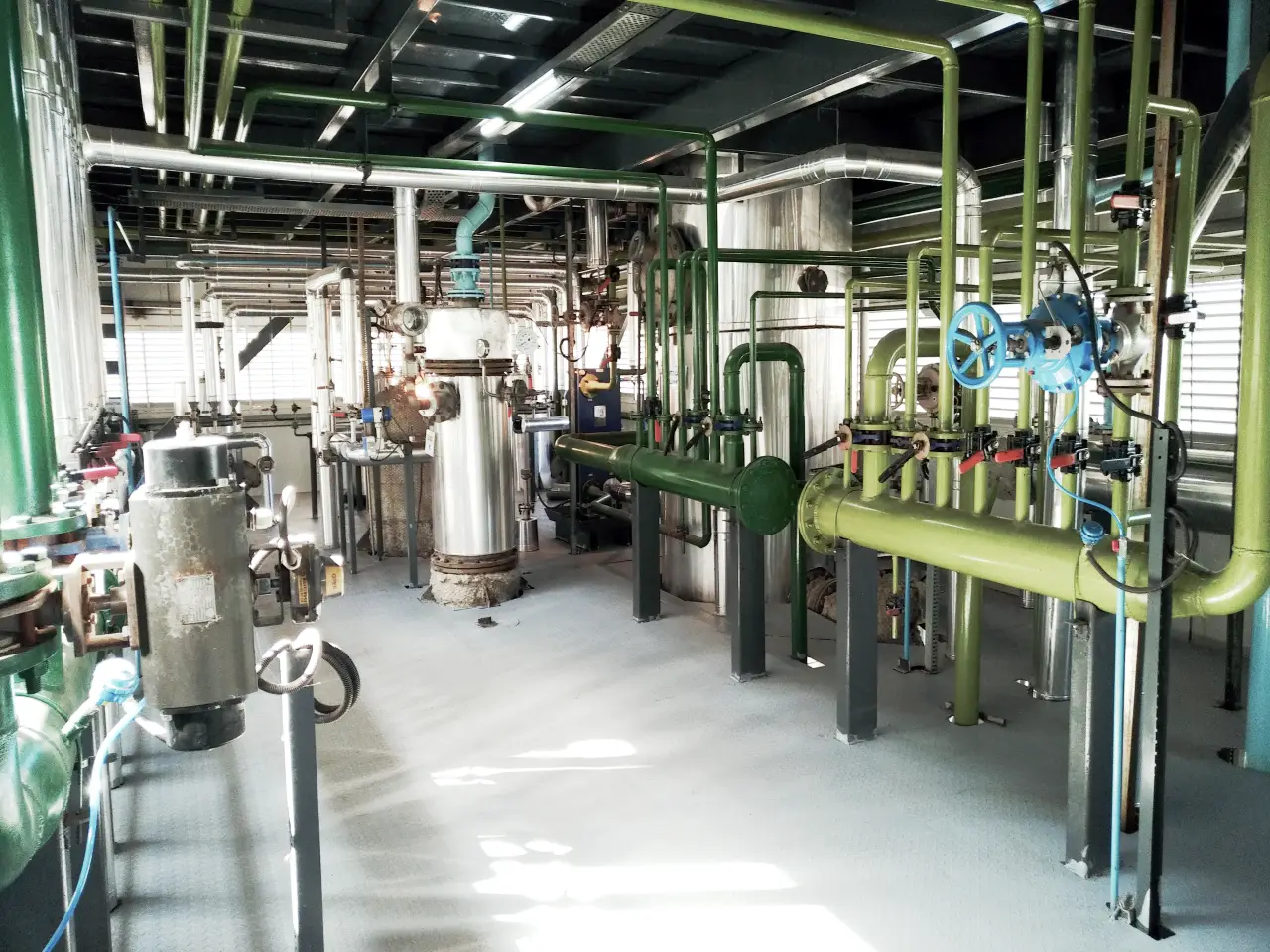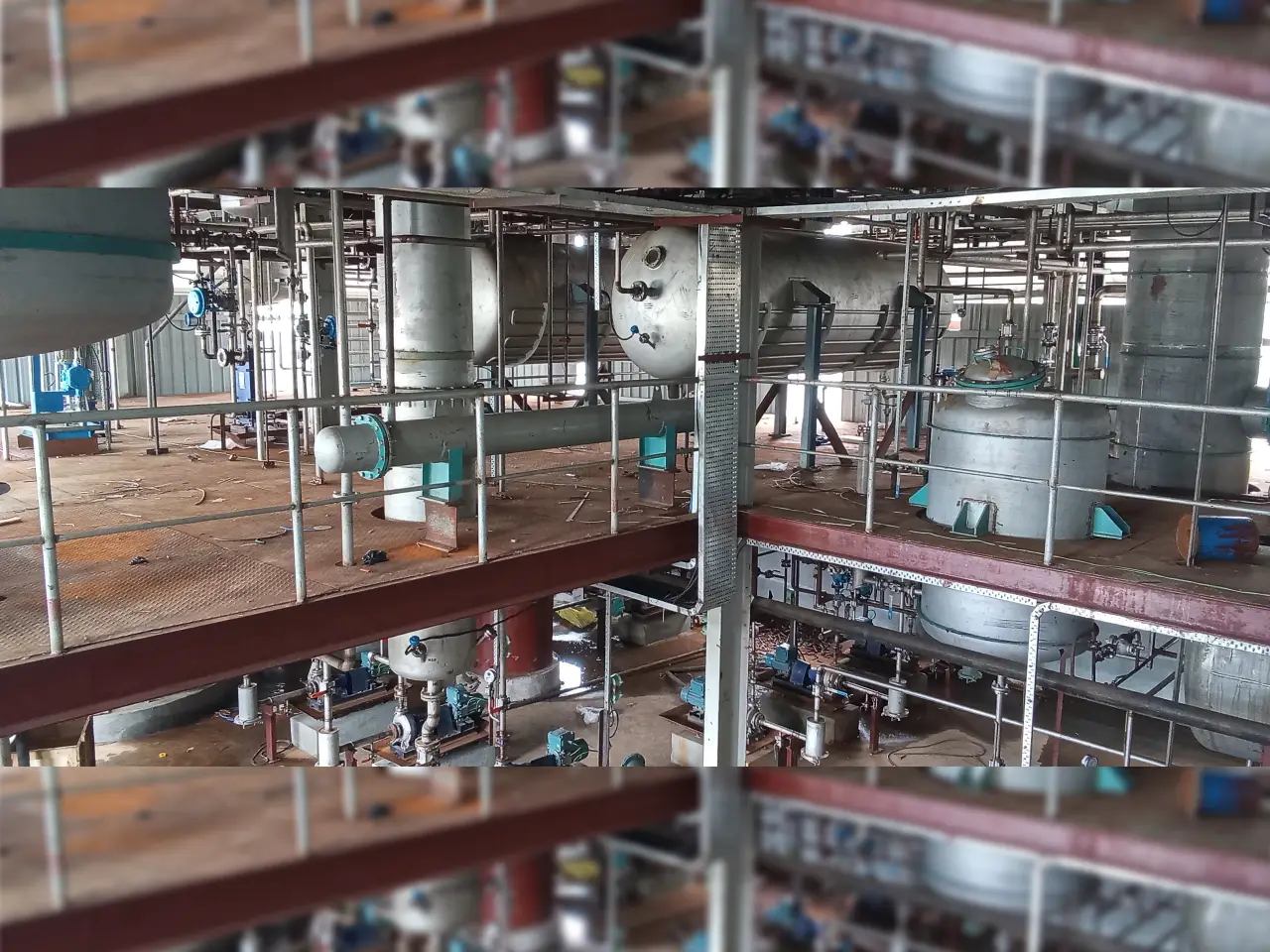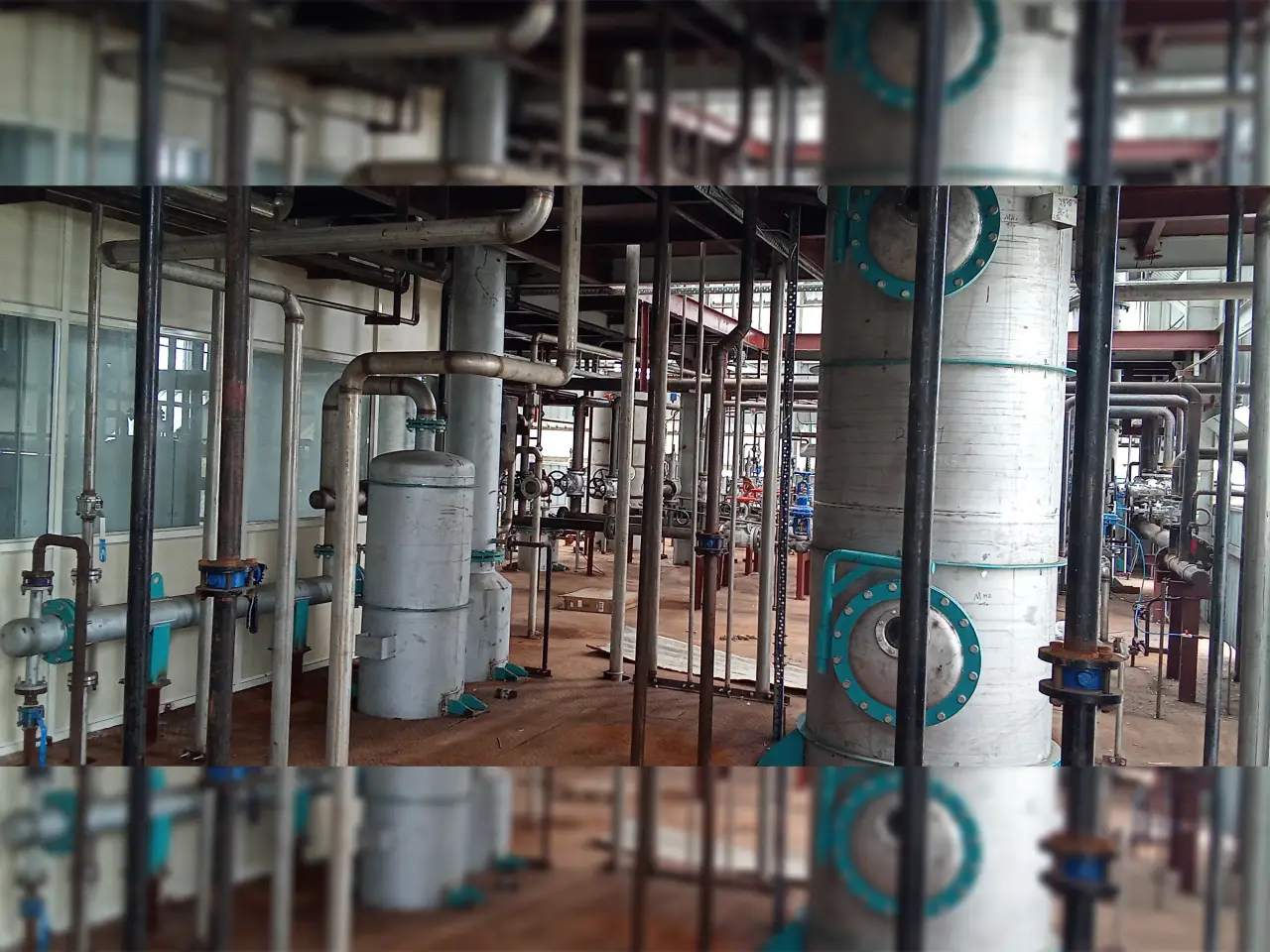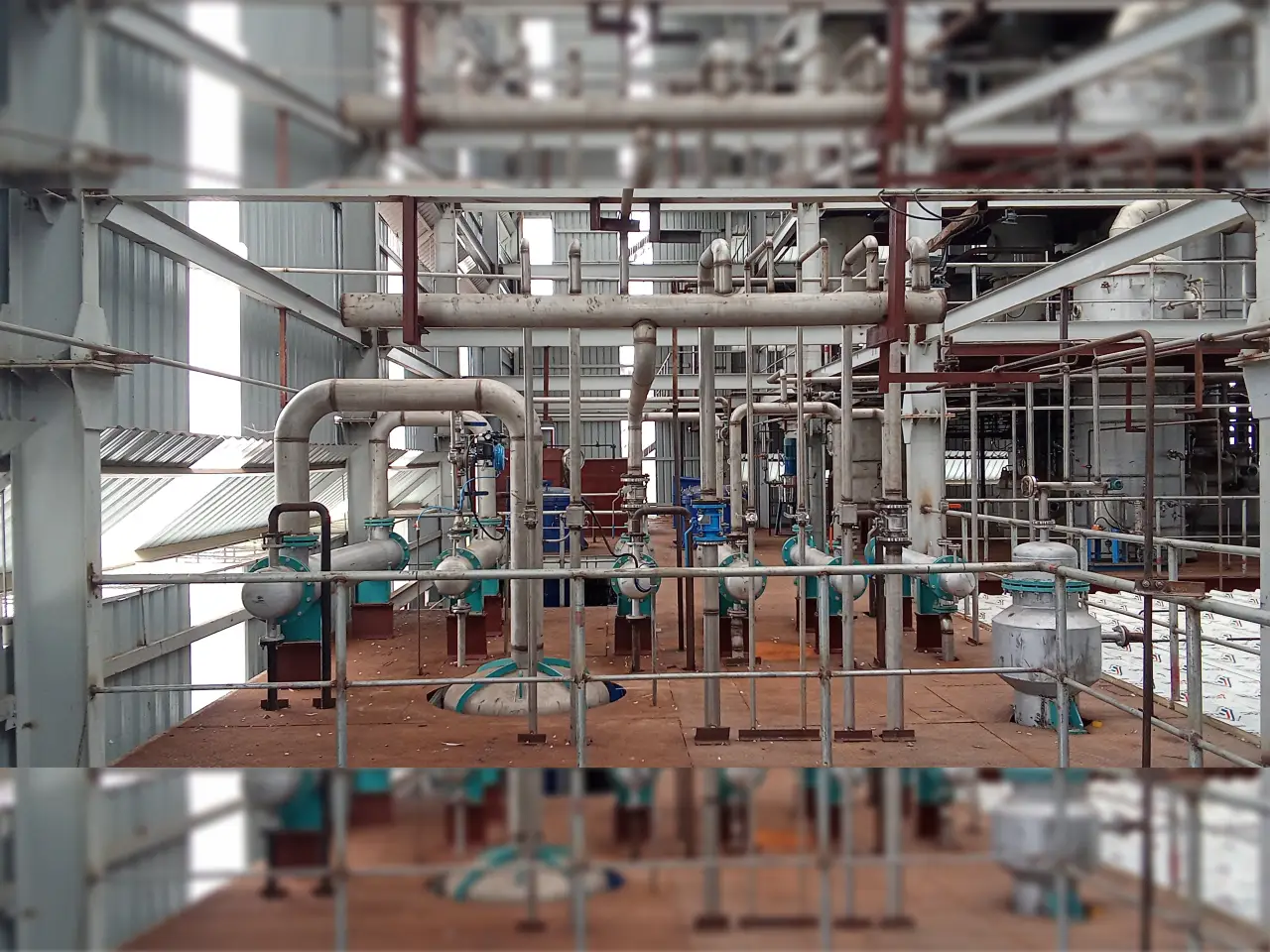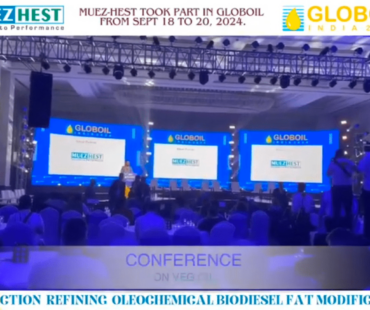What is Biodiesel Plant
Biodiesel is a renewable fuel, scientifically known as Fatty Acid Methyl Ester (FAME), produced through the transesterification of various oils and fats. These sources can include vegetable oils, yellow greases, used cooking oil, and animal fats. The transesterification process involves reacting the triglycerides in these fats with alcohol, typically methanol, in the presence of a catalyst or enzyme. The result is the formation of methyl esters (biodiesel) and glycerin as a byproduct.
Biodiesel can be used directly in diesel engines without modification, making it a sustainable and environmentally friendly alternative to traditional petroleum-based diesel. It plays a significant role in reducing greenhouse gas emissions, enhancing energy security, and supporting sustainable development.
Feedstocks for biodiesel are divided into two main categories

Used cooking oil, tallow, and vegetable oil (CPO, Soya, Sunflower, and Palm Stearin) are examples of low FFA feedstock.

High FFA feedstock includes wasted oil, high FFA vegetable oil, free fatty acid distillate, and acid oil.
Our services
Steps in Biodiesel Production
Why Choose Muez Hest
Advanced Technology: Muez-Hest is at the forefront of biodiesel manufacturing plant technology, offering R&D-based, validated processes for the pretreatment of feedstock, transesterification, and distillation. Our technology ensures the production of high-quality BS100 Biodiesel that meets ASTM, EN, and IS standards.
Multi-Feedstock Processing: Muez-Hest biodiesel plants in India are designed to handle a variety of feedstocks, including edible and non-edible vegetable oils, used cooking oil, and animal fats. This versatility allows for efficient production regardless of the available raw materials.
Economic Efficiency: Our biodiesel manufacturing plants developed by Muez-Hest are both efficient and cost-effective, making them a suitable choice for biodiesel production on a commercial scale.
Byproduct Utilization: Muez-Hest not only focuses on biodiesel production but also provides solutions for converting the byproduct glycerin into Pharma Grade Glycerine (98.7% purity), adding value to the overall process.
Compliance with Standards: Muez-Hest ensures that all biodiesel produced through our biodiesel plant setup technology complies with international safety and quality standards, providing a reliable and consistent product.
Applications of Biodiesel Plant

Renewable Fuel Source
Biodiesel is used as an alternative fuel for diesel engines without requiring modifications, making it a practical replacement for petroleum diesel.

Environmental Impact
By reducing greenhouse gas emissions, biodiesel contributes to climate change mitigation and supports global efforts toward a more sustainable energy future.

Energy Security
Biodiesel production reduces dependence on fossil fuels, enhancing national energy security and promoting the use of domestic feedstocks.

Government Policies
Many governments are promoting biodiesel as part of their energy strategies, aiming for targets like 5% biodiesel blending in diesel by 2030.
Get A Quote to discuss
your manufacturing requirements

Global Installation
Global Installation
Strategies to ensure proactive domination. At the end of the day,User generated content in real-time will have multiple touchpoints for offshoring.
-
0
Project completed
-
0
Satisfied client
-
0
Year of experience
-
0
Qualified specialist
Our Clients
We worked with royal clients























our blogs
Recent News & Articles
March 15, 2025
MuezHest Sponsoring FOIC 2025 in Mumbai
October 20, 2024
Highlights from SOPA Soyconclave 2024
Read More
➤ Your Trusted Biodiesel Plant in India: Revolutionizing Fuel
Advanced Biodiesel Manufacturing Plants & Setup: Powering a Greener Tomorrow
As India accelerates towards a sustainable energy future, the demand for renewable fuels like biodiesel is growing exponentially. At Muez Hest, we are at the forefront of this green revolution, offering cutting-edge biodiesel plant in India solutions. Our expertise lies in designing, manufacturing, and commissioning advanced biodiesel manufacturing plant facilities that efficiently convert various feedstocks into high-quality, eco-friendly fuel.
The Muez Hest Advantage: Leading Biodiesel Plant Manufacturers in India
Choosing the right partner for your biodiesel manufacturing plant in India is crucial. Muez Hest stands out as a premier name among biodiesel plant manufacturers in India due to our commitment to innovation, efficiency, and sustainability. We specialize in robust, multi-feedstock processing plants capable of handling everything from vegetable oils and animal fats to used cooking oil and acid oil. Our plants are meticulously engineered to maximize biodiesel yield and ensure the resulting fuel adheres to stringent international quality standards like ASTM, EN, and IS.
Our comprehensive process includes crucial stages such as pretreatment, deacidification, esterification, transesterification, and purification. We also offer advanced solutions for glycerin purification, transforming this byproduct into high-purity Pharma Grade Glycerine, adding further value to your operation. Partner with Muez Hest to invest in a sustainable future, reduce your carbon footprint, and contribute to India's energy independence.
Seamless Biodiesel Plant Setup: From Concept to Commissioning
Embarking on a new venture requires reliable support. Muez Hest simplifies the entire biodiesel plant setup process, from initial consultation and feasibility studies to detailed engineering, equipment manufacturing, installation, and commissioning. As experienced biodiesel machinery manufacturers India, we provide cutting-edge technology and robust machinery built for longevity and peak performance. Our integrated approach ensures a smooth transition from project inception to a fully operational biodiesel manufacturing plant. We understand the unique challenges and opportunities within the Indian market, making us the preferred choice for your biodiesel plant in India.
Our commitment extends beyond just providing equipment; we offer comprehensive training and ongoing technical support to ensure your biodiesel manufacturing plant operates efficiently for years to come. Whether you're looking for a small-scale facility or a large industrial-grade biodiesel manufacturing plant, Muez Hest delivers tailored solutions that meet your specific production goals and budget. Invest in a Muez Hest biodiesel plant in India and join the growing number of businesses contributing to a cleaner, more energy-independent nation.
faq
Frequently Asked Questions
Discover some of the most asked questions regarding Biodiesel Plant in India.
What is Biodiesel made from?
Biodiesel is made from oils and fats such as vegetable oils, used cooking oil, yellow greases, and animal fats. These are processed through transesterification to produce fatty acid methyl esters (FAME).
Can Biodiesel be used in regular diesel engines
Yes, biodiesel can be used in existing diesel engines without any modifications, making it a direct substitute for petroleum diesel.
What are the environmental benefits of using Biodiesel?
Biodiesel reduces greenhouse gas emissions, supports renewable energy initiatives, and decreases reliance on fossil fuels, making it an environmentally friendly fuel option.
Why is pretreatment necessary in the Biodiesel production process?
Pretreatment removes impurities that could hinder the transesterification process, ensuring the production of high-quality biodiesel.
What makes Muez-Hest a leading provider of biodiesel manufacturing plant technology?
Muez-Hest offers advanced, cost-effective, and versatile biodiesel plants in India capable of processing various feedstocks while ensuring compliance with international standards and efficient byproduct utilization.
What is the byproduct of Biodiesel production and how is it used?
The byproduct is glycerin, which can be further refined into Pharma Grade Glycerine, adding value to the biodiesel production process.
Go To Top

